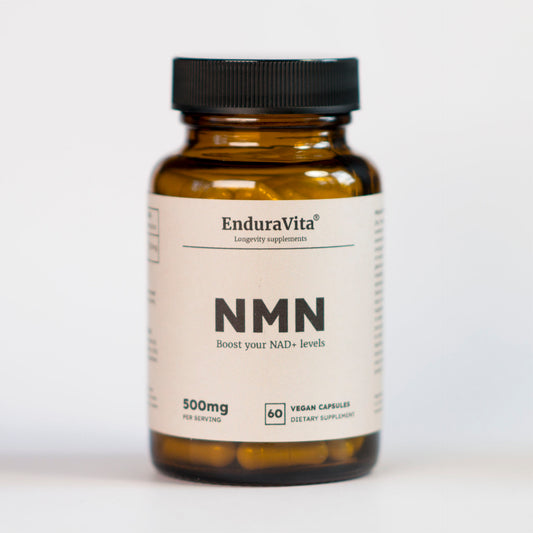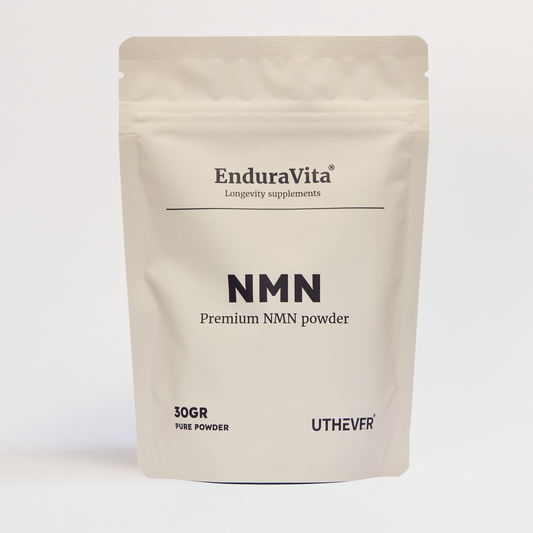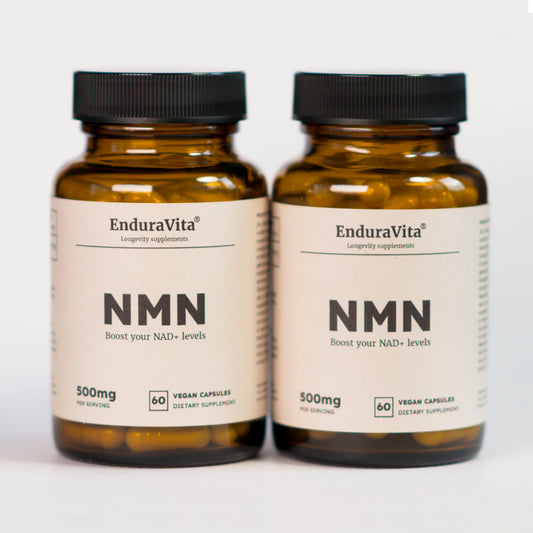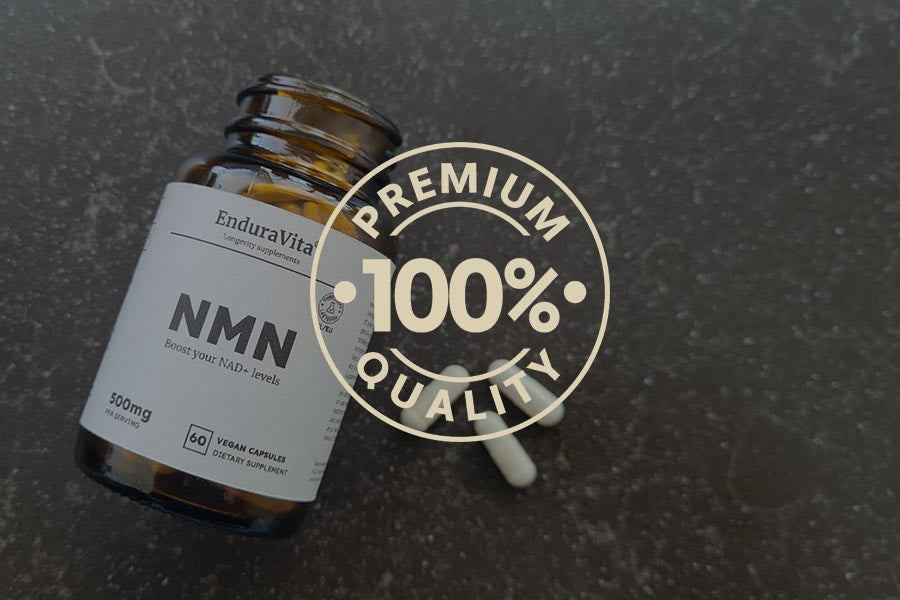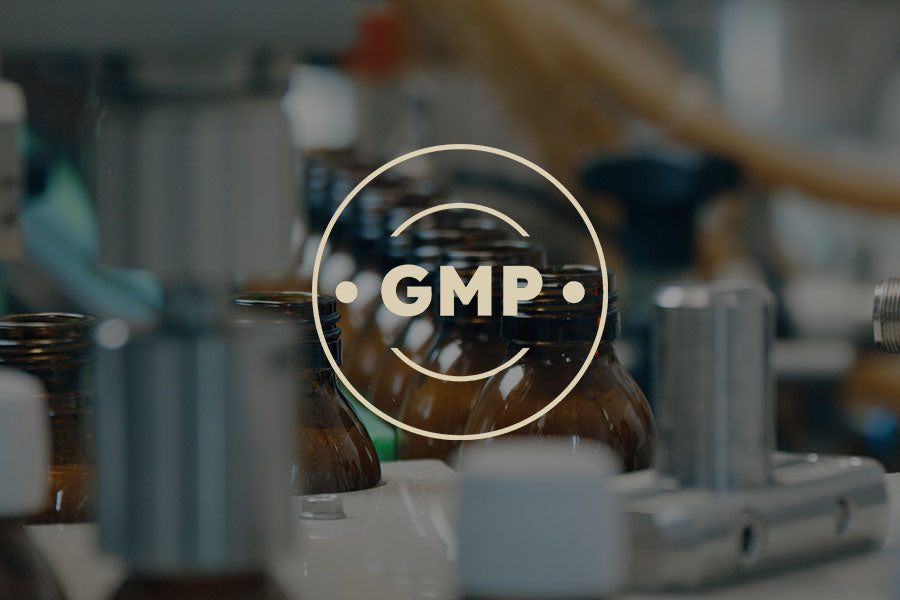
What is oxidative stress?
Oxidative stress is perhaps a term you sometimes come across in topics about health and aging. But what exactly is oxidative stress? It refers to an imbalance in the body between free radicals and antioxidants. Although oxidative stress is a normal reaction in the body, if left unchecked, it can lead to serious health problems and accelerated aging. In this article, we delve deeper into what oxidative stress exactly is, how it arises, what the symptoms are, and how you can reduce the effects.
Oxidative stress meaning
Oxidative stress occurs when there is an imbalance between the amount of free radicals in the body and the amount of antioxidants the body produces to neutralize them. Free radicals are incomplete molecules that form in the body, usually through normal metabolic processes. When there are too many of these molecules and not enough antioxidants to keep them in check, they can cause damage to healthy cells and tissues.
How does oxidative stress occur?
Oxidative stress is caused by the excessive accumulation of free radicals. Free radicals are molecules that are missing an electron, making them unstable. This instability causes them to steal electrons from other molecules in the body, which damages healthy cells. This process is called oxidation and can affect various parts of the body, particularly oxygen-rich tissues such as mucous membranes and joint capsules.
What are free radicals?
Free radicals are molecules that are incomplete because they contain an unpaired electron. This makes them extremely reactive and capable of attacking other molecules and stealing electrons. This damage to healthy cells can lead to inflammation, aging, and an increased risk of various diseases.
How do free radicals affect the body?
Free radicals can cause damage to cells by the loss of electrons. This process affects oxygen-rich tissues, such as the skin and joints, which can lead to inflammation, pain complaints, and faster aging of cells. As a result, symptoms of oxidative stress can manifest in the form of skin problems, fatigue, and reduced resistance.
Oxidative stress symptoms

Oxidative stress can manifest in your body in various ways. Symptoms often associated with oxidative stress include:
- Fatigue: Chronic fatigue can be a sign of oxidative stress, especially when it is not caused by lack of sleep or overexertion.
- Skin problems: Oxidative stress can lead to skin aging, wrinkles, or a dull complexion because the skin cells are affected by free radicals.
- Reduced resistance: Oxidative stress weakens the immune system, making you more susceptible to infections and diseases.
- Feeling of mental fog (brain fog): Reduced concentration and memory problems can also be a result of oxidative stress.
When experiencing such symptoms, it is important to consult a doctor to determine whether oxidative stress is the cause or if there are other underlying conditions.
Causes of oxidative stress
Oxidative stress can be caused by both external and internal factors:
External factors:
- Radiation: Exposure to UV radiation and X-rays increases the risk of free radical formation.
- Tobacco smoke and alcohol: Both contribute to the production of free radicals and disrupt the balance of antioxidants in the body.
- Unhealthy food: Processed foods and sugary drinks can promote oxidative stress by increasing the production of free radicals.
- Stress and increased cortisol levels: Prolonged stress can lead to increased levels of cortisol, which increases the risk of oxidative stress.
Internal factors:
- Increased blood sugar level: High blood sugars can promote the production of free radicals, especially in people with diabetes.
- Infections and inflammations: Chronic infections or inflammations in the body can disrupt the balance between free radicals and antioxidants.
Incorrect sleeping habits: Poor sleeping habits contribute to oxidative stress because the body does not have enough time to recover and repair cells.
What are the effects of oxidative stress on your health?
Oxidative stress has serious consequences for health. When the body is insufficiently able to repair the damage caused by free radicals, the consequences can worsen.
Inflammations due to stress
Oxidative stress can contribute to inflammation in the body. This occurs especially in the joints, muscles, and tendons, where free radicals damage the cells. These stress-induced inflammations can lead to pain complaints, stiffness, and an increased risk of chronic conditions such as arthritis.
Increased health complaints
Prolonged oxidative stress increases the risk of serious health problems, such as cardiovascular diseases, neurodegenerative disorders like Alzheimer's disease, and even some forms of cancer. The body's ability to heal and protect itself is weakened by the excess of free radicals.
What can you do against oxidative stress?
Fortunately, there are several ways to reduce oxidative stress and limit the damage it causes. The key lies in promoting a healthy lifestyle and supporting the body with antioxidants.
Healthy lifestyle
- Healthy food: A diet rich in antioxidants, such as vegetables, fruits, nuts, and seeds, helps the body neutralize free radicals. Foods like blueberries, broccoli, and spinach are known for their antioxidants.
- Movement: Regular physical exercise stimulates the production of antioxidants and reduces the negative effects of free radicals.
- Avoidance of harmful substances: Limiting exposure to tobacco, alcohol, and pollution helps reduce the burden of free radicals.
- Stress management: Techniques such as meditation, breathing exercises, and yoga can help reduce the amount of free radicals caused by stress. Improving sleep habits is also important.
- Resveratrol supplements
In addition, antioxidants in supplement form, such as Resveratrol, can affect the balance between free radicals and antioxidants support. Antioxidants play a crucial role in neutralizing harmful substances that can cause cell aging and damage. The operation of Resveratrol is especially known for supporting cell health and combating oxidative stress, which can contribute to a slower aging process. Curious about how you can use Resveratrol to reduce oxidative stress? Check out our Resveratrol supplements.

